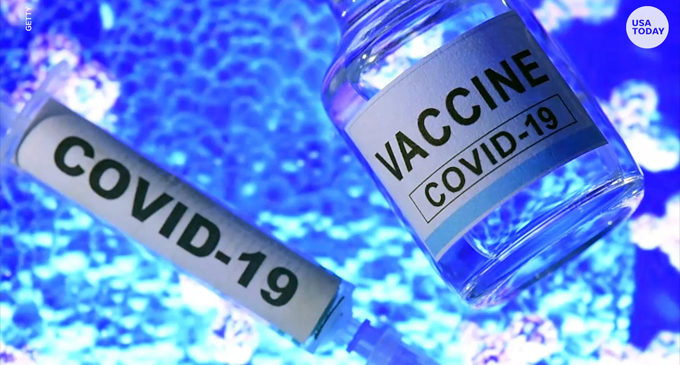Commentary: I got the COVID vaccine. You should, too.

By Judie Holcomb-Pack
In August I made the decision to enroll in the Pfizer BioNTech COVID vaccine study being conducted by a local research company. I am not one who is usually a risk-taker and I thought long and hard before I made the decision. But I am an older adult – a much needed demographic for the study – and healthy with no underlying health concerns.
Besides, someone had to do it. Why not me? So I joined the over 40,000 people around the country who were enrolled in the vaccine study that would hopefully result in a successful vaccine against COVID and help bring this horrific pandemic to an end sooner rather than later.
The process to be accepted into the study involved several hours of education about the benefits and risks of the vaccine, a health check-up, and a time for questions with the doctor overseeing the study. I was informed that I had a 50% chance of getting the vaccine versus a placebo, an app was installed on my iPhone to report any symptoms I experienced, and I was given a gift card for my participation.
The first shot was similar to a flu shot and with the exception of a slightly sore arm, I didn’t experience anything unusual. For that reason, I assumed I had received the placebo. Three weeks later I returned to receive the second shot. I didn’t immediately experience anything unusual, which confirmed my suspicion that I had received the placebo. That evening, nothing; the following morning, nothing. I took my temperature and it registered the usual 97.6 degrees. By that time I had convinced myself I had the placebo and went on with my day’s activities, expecting no change.
Just after lunch I suddenly realized I wasn’t feeling my usual perky self. Something was different and I was feeling a little bit queasy. I took my temperature and it was 101. Bingo! I had the vaccine!
I haven’t felt any fear by participating in the vaccine study because I know that by the time a drug gets to Phase 3, it has been determined to be safe for testing in humans. Also, this vaccine doesn’t contain the whole virus or those parts of the virus that can make you sick. Instead, it contains part of the virus’ genetic code, the RNA, which helps your body produce antibodies to fight COVID-19.
I am elated that the Pfizer BioNTech vaccine has shown to be 95% effective and has been given an emergency approval by the FDA. Millions of doses are now being delivered to the states to begin their vaccination programs, starting with front-line healthcare workers and those in long-term facilities.
According to a recent Gallop poll, 42% of Americans said they would not get the vaccine. This number appears to be deceasing with more news and data being shared about the effectiveness and safety of the Pfizer BioNTech vaccine, as well as the Moderna vaccine that is awaiting final approval. But to bring the pandemic under control, the majority of Americans need to get vaccinated. And we all need to continue to wear masks, practice social distancing, and not gather in large groups until the rate of infections, hospitalizations and deaths decreases significantly.
I again think about why I volunteered to be in this study. Yes, I wanted to do my part to help my fellow Americans. And the gift cards I receive when I return to the facility for blood work is an added bonus. But on a more personal level, I want to safely visit my children and grandchildren again. I want to see my grandchildren grow up. I want to hug my family and friends again.
And so I took a leap of faith and got the COVID vaccine. I hope you will, too.
Judie Holcomb-Pack is associate editor of The Chronicle and grew up on the Southside of Winston-Salem.









